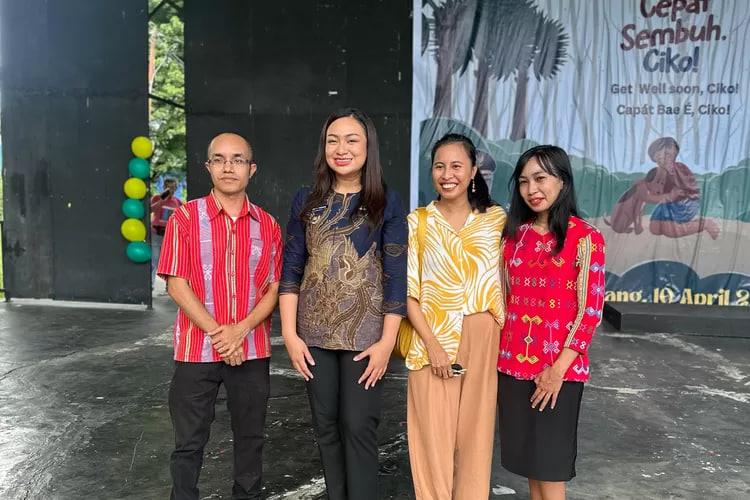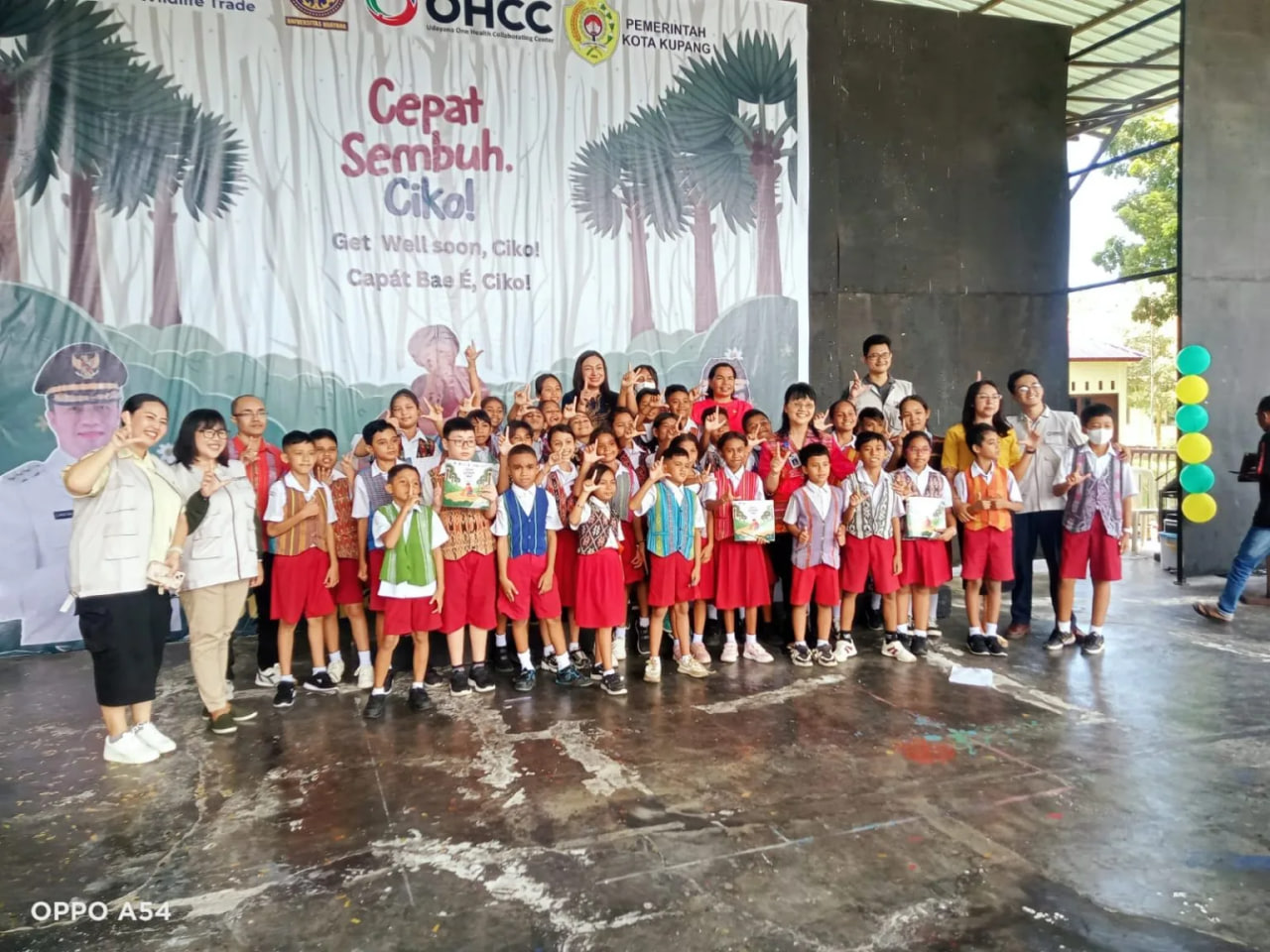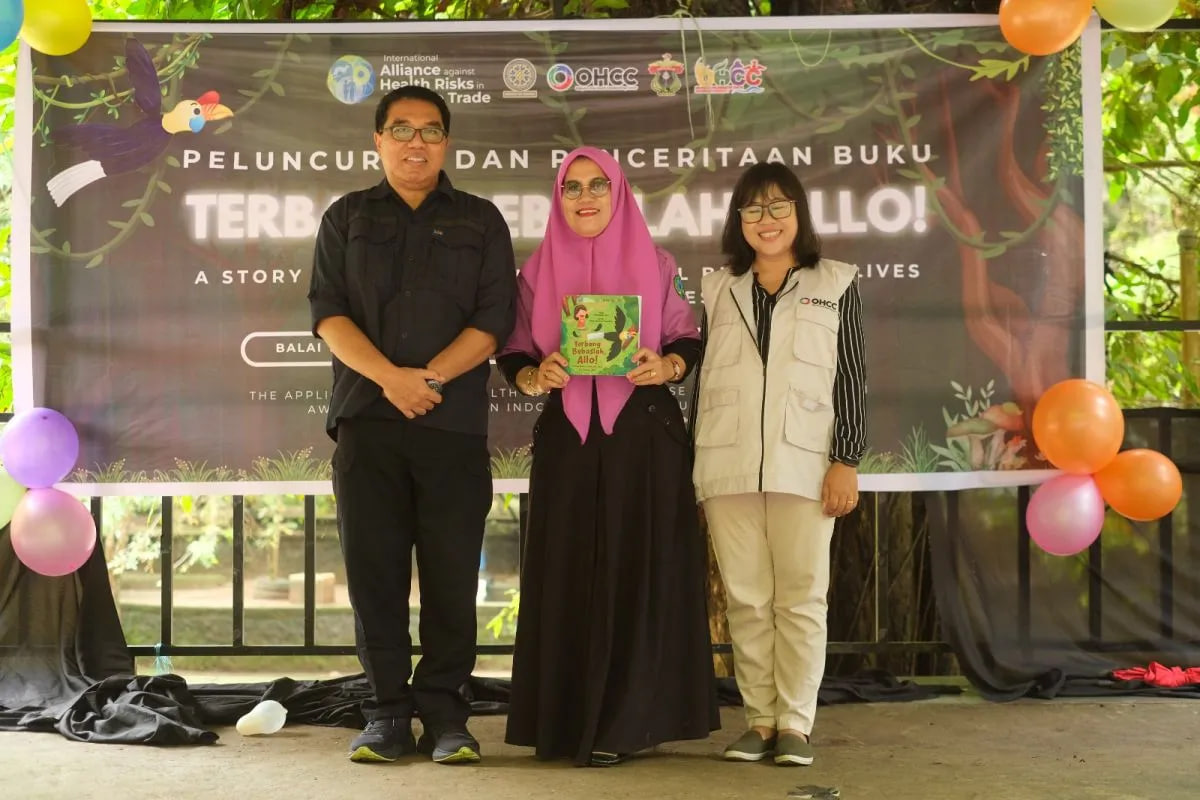OHAWE 2024
The Application of One Health Approach to Raise Wildlife Protection Awareness in Indonesia," or OHAWE, is a collaborative initiative led by the One Health Collaborating Center (OHCC) at Udayana University in cooperation with the International Alliance Against Health Risks in Wildlife Trade (implemented by The Deutsche Gesellschaft für Internationale Zusammenarbeit). This project focuses on increasing awareness of wildlife protection in Indonesia—particularly among children—by applying the One Health approach, which emphasizes the interconnectedness of human, animal, and environmental health.
The project's main activities include the development and dissemination of informative children's storybooks. These books are presented in three languages: Indonesian, the respective regional language, and English, to reach a wide audience and integrate local culture. Each participating region, including Aceh, Papua, Bali, Riau, and South Kalimantan, selected an endemic or endangered wildlife species as the main theme for their stories, such as: orangutans in Aceh, cuscus in Papua, long-tailed monkeys in Bali, Sumatran tigers in Riau, and sun bears in South Kalimantan.
Through storytelling activities at elementary schools, such as those conducted at: SD Advent Abepura, SDN 1 Galam and SDN 1 Batakan in South Kalimantan, and SDN 003 Lubuk Kembang Bunga in Riau, the project aims to educate children about the dangers of wildlife trade, related health risks (especially zoonoses), and the importance of forest and wild animal conservation. The hope is to foster a sense of respect and appreciation for wildlife preservation from an early age, encouraging them to become agents of change in conservation efforts. This project is also part of academic research to understand the effectiveness of the storytelling approach in conservation education.



UDAYANA UNIVERSITY